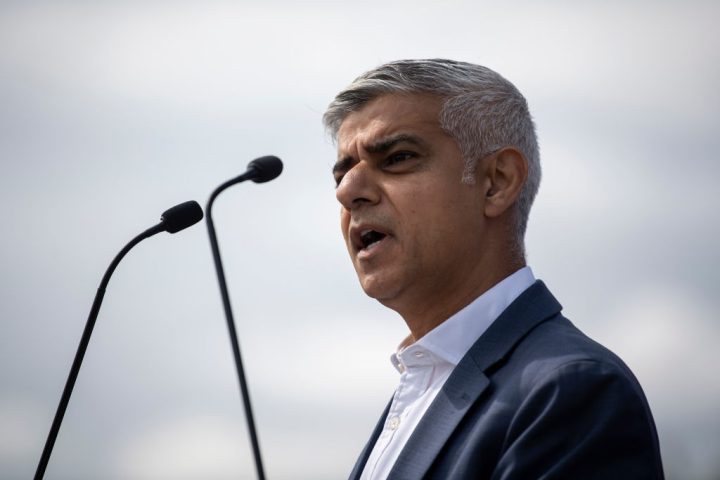Mayor of London Sadiq Khan was quick out of the blocks to join the condemnation of the Metropolitan Police following the publication of Louise Casey’s report. He even slapped down Met Commissioner Sir Mark Rowley for daring to question Casey’s assertion that the Met was ‘institutionally misogynistic, racist and homophobic’.
So does that mean that Khan will now revisit his decision to share with the Met data from hundreds of cameras set up to police his Ultra Low Emissions Zone (Ulez)? Alas, it seems not.
If we are going to use mass surveillance in this way, ought it not to be part of the public debate?
The Data Protection Impact Assessment carried out by TfL for the Ulez expansion due to come into force in August includes provision for the police to be granted access to the network for ‘law-enforcement or policing purposes’. In other words, to sum up Khan’s position one could, not unreasonably, write the headline: London mayor agrees to share pictures of our cars with misogynists, racists and homophobes.
The cameras, the impact assessment goes onto say, are not designed to capture faces of the occupants of vehicles (although it doesn’t say they won’t inadvertently capture this data), only the number plates, which can be read via automatic number plate reading (ANPR) technology. What it does say is that the images will be kept for 21 days – in cases where a vehicle has been identified as being not liable for the charge – and up to three months in other cases. There are a very large number of cameras involved. As of 2021, TfL employed 981 cameras to police the congestion charge and original low emissions zone. In expanding Ulez to the North and South Circular Roads a further 1,050 were added to the system, and a similar number will be required to expand Ulez to London’s boundaries.
There are good arguments for why police ought to have some access to ANPR data, as from other CCTV cameras. Supporters of the idea will point to Wayne Couzens, the Met officer who murdered Sarah Everard, and point out that he was picked up so quickly thanks to him and his car being picked up on CCTV (technology didn’t seem to be so good at identifying him and investigating flashing offences committed prior to the murder; something which could have removed him from the streets before he could abduct and murder Everard). There is widespread support for using CCTV to solve serious crimes – or at least apathy on the dangers of mass surveillance.
But if we are going to use mass surveillance in this way, ought it not to be part of the public debate? So far, the case for and against Ulez has revolved almost entirely around questions of fairness and the effect on the economy. The fact that these cameras will also be used for routine surveillance of the population seems to have escaped notice. Shouldn’t we at least be invited to give our consent for this – and be allowed to debate which purposes we do want to consent for cameras to be used for?
Using CCTV and ANPR cameras to solve rapes and murders is one thing, but we know from previous experience what happens with public surveillance: mission creep sets in, and we find cameras being used for purposes which were never even mentioned when they were installed. In a future pandemic will police be using the Ulez cameras to ensnare people visiting their mum? Will they be used to capture motorists who should have taken their car for an MOT last week but didn’t have the time and have now booked it in for next week? Will they be used to fine motorists who overstayed their welcome in a parking bay for a few minutes?
Given that TfL appears willing to grant police the use of the cameras unconditionally for ‘law-enforcement or policing purposes’ we can work out that the answer to this question is probably yes. There is nothing in the impact assessment to suggest that the ANPR cameras will only be allowed to be used proportionately, for serious offences. Just like bus lane and box junction cameras, they will almost certainly end up being used to scoop up large numbers of the most minor offenders. That should worry us, but Sadiq Khan doesn’t even seem to want to share it with us.







Comments